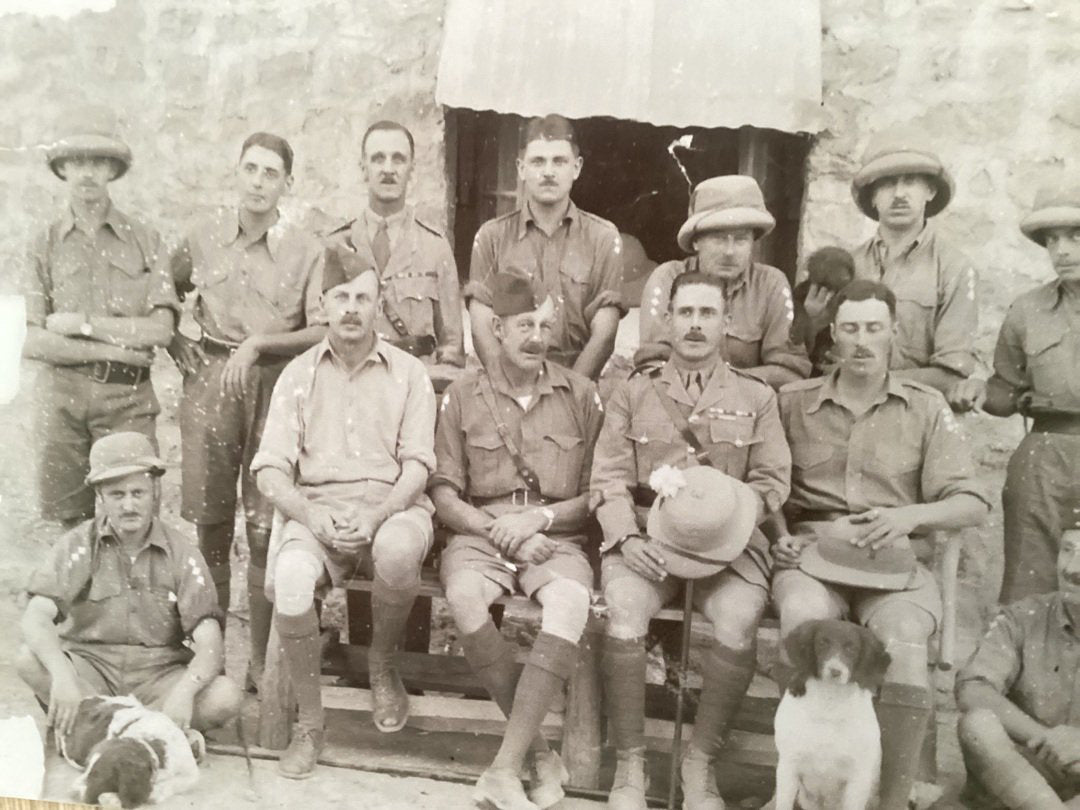One of the most famous figures known to have worked at Trent Park during the war was Colonel Thomas Kendrick, a man whose role in military intelligence during both wars is only just becoming fully apparent. The staff at Trent Park House operated under a veil of secrecy, and the majority took their true nature and content of their work to the grave with them.
Lieutenant Colonel Frank Huband was one such staff member. Born in Marylebone, London in 1887, Huband enlisted in the Royal Fusiliers when he turned 16. He distinguished himself during the First World War, earning two Distinguished Conduct Medals – one at Gallipoli and one on the Western Front – a mention in Despatches (Egypt, 1916) and a Military Cross in 1920.
Huband also spent a considerable portion of both his pre and post war military career in India – marrying Mabel Boyde at Holy Trinity Church in Karachi in 1913: the couple went on to have 3 children. Officially retiring in 1935, the outbreak of war in 1939 saw Huband recalled from his home in Staffordshire to his role in the North Staffordshire Regiment. He was one of the hundreds of thousands of soldiers evacuated from the beaches of Dunkirk in June 1940.
In August 1940, Huband was posted to the Prisoner of War Directorate at the War Office, before moving over to MI19 in 1942, when he was posted to Beaconsfield. As Assistant Commandant to Colonel Thomas Kendrick, Huband helped oversee the running of Trent Park and Latimer House, where MI19’s top secret military intelligence projects, the ‘M rooms’ were operating. Like all who worked in military intelligence, his work was top secret and he never spoke of it: his wife Mabel only knew that it involved various locations as she would telephone to help arrange transport to and from them.
Huband enjoyed having fun: during Kendrick’s absence in August 1943, Huband organised a cricket match between MI9 and MI19 to provide some light relief for staff amongst the serious work they were undertaking.
It was only in December 1945 that Huband was finally permitted to fully retire from the Army, this time as Lieutenant Colonel. He returned home to Staffordshire where he and Mabel continued to run the Roebuck Inn, Cannock, and Frank also helped set up training centres to help demobbed soldiers gain qualifications for civilian life – work for which he later received an MBE. He died in September 1965.
This is a guest article by Pamela Wertheim, Lieutenant Colonel Frank Huband’s grand-daughter.
News, Articles & Events
The Spymaster's Assistant: A Profile of Lieutenant Colonel Frank Huband

